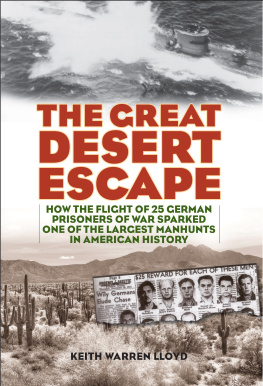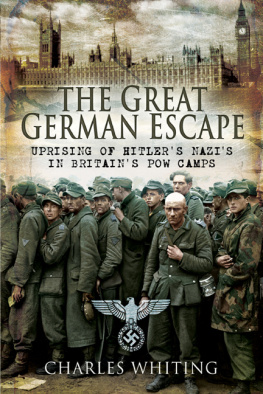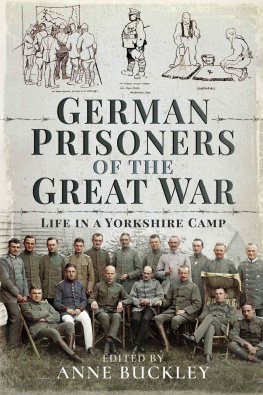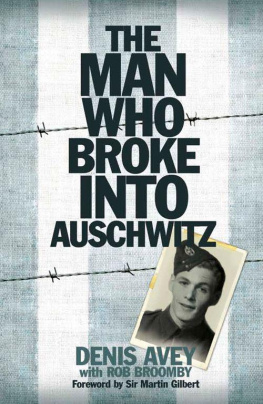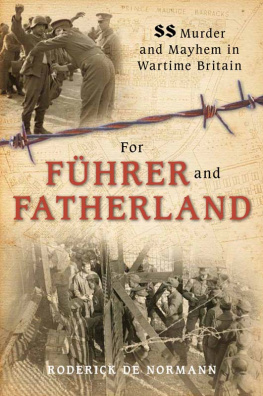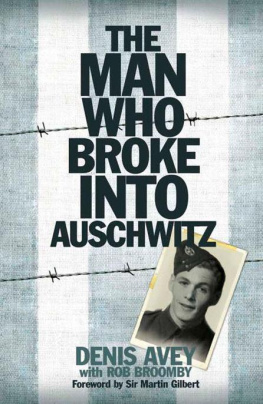First published 1996
This edition first published 2009
The History Press
The Mill, Brimscombe Port
Stroud, Gloucestershire, GL5 2QG
www.thehistorypress.co.uk
This ebook edition first published in 2012
All rights reserved
Roderick de Normann, 1996, 1997, 2009, 2012
The right of Roderick de Normann, to be identified as the Author of this work has been asserted in accordance with the Copyrights, Designs and Patents Act 1988.
This ebook is copyright material and must not be copied, reproduced, transferred, distributed, leased, licensed or publicly performed or used in any way except as specifically permitted in writing by the publishers, as allowed under the terms and conditions under which it was purchased or as strictly permitted by applicable copyright law. Any unauthorised distribution or use of this text may be a direct infringement of the authors and publishers rights, and those responsible may be liable in law accordingly.
EPUB ISBN 978 0 7524 8976 6
MOBI ISBN 978 0 7524 8975 9
Original typesetting by The History Press
CONTENTS
Dedicated to all those who died
so close to the light
at the end of their personal tunnels.
Acknowledgements
Where does one begin in a work of this sort, when those who have helped, advised, worked, even cajoled, are legion? If I have missed anyone out I do apologise.
To start, I must thank those who are still part of this story today; in particular Dick Hurn, who suffered my questioning on several occasions, and who has written the Foreword to this work. Also the former German prisoners of war still living in the United Kingdom: Mr Riedel, Erich Schoenfeld, Karl-Heinz Henning, Emil Flemming, Walter Herkstroeter and Paul Tauber; also Norbert Gladigau, Adam Mayer, Herman Heiner, Helmut Epstein and K.H. Przybylski who took the trouble to write to me from Germany.
I must also thank Pawel Bechler, a former member of 5 Polish Guard Company, and Mrs Bechler, a former Red Cross worker. Both still live close by the camp he once guarded and she once worked in. Arthur Mac McKechnie from Chumleigh in Devon, a former Band Boy with the Second Battalion, Royal Wiltshire Regiment, has also been inspirational and full of encouragement.
Further afield, my grateful thanks must go to Peter Everett, presently working in Bristol for the BBC. His research and production of the documentary The Black and the Grey in 1984 produced a mass of information which he allowed me to use. In particular, his archival notes regarding Colonel Wilson in Comrie Camp and the translations of some of the Sulzbach Papers were invaluable.
In Devizes, now my own home town, I was always kept on the right track by those who themselves had lived through the war. In particular I would like to thank Albert Charlie May, a virtual goldmine of information, as well as Len Reeves, who suggested a number of good contacts. Joy Pride, Jim Gaigers niece, also has my thanks for her detailed accounts of those days.
I should also mention Lorna Haycock of the Devizes Local History Society and the Devizes Museum, as well as Jim Girvan, Bill Underwood and David Knapman. As regards the Devizes railway, which played a key role in the story, I must thank Rod Priddle and wish him luck with his own book, as well as Lil Painter and Eric Slade who used to work there during the war. Also a special thank-you to Doug Richards, a former Welsh Guardsman at the London Cage.
In Scotland, I owe a big debt of gratitude to the McCullochs, father and son, as well as to James McLeod, presently serving in Bosnia as a TA Signaller. Also Alexander Budge who, alongside Class 7 at Hillhead School in Wick, produced the most excellent In Enemy Hands and allowed me to use extracts from their interviews. At the same time, I must also thank Stuart Smith who undertook some of the ground work in Comrie itself and Mr W.F. Will who lent me his copy of the BBC programme The Black and The Grey.
To the staffs working so hard in some of the nations archives and collections, my gratitude is also due. As always, such a book could not be written without recourse to the Public Record Office at Kew. Material quoted from their files is Crown copyright and, as always, is reproduced with the permission of the Controller of Her Majestys Stationery Office. I could not have made use of the documents without the help and direction of Mr I.D. Goode, the Deputy Departmental Record Officer at the Ministry of Defence who went so far as to review, and open, closed files on my behalf.
Of course, it goes without saying that the resources at the Imperial War Museum in London were excellent, especially the Sound Archives Department whose recordings are unique. The same must be said of the Trustees of the Liddell Hart Centre for Military Archives in London who gave permission for me to use the Sulzbach letters in their collection.
Closer to home, a very big thank-you must also go to the Wiltshire Record Office at Trowbridge. Without their permission to use material from the Wiltshire Constabulary files, this story would have been sadly incomplete. The same can be said of the Liverpool Constabulary who helped me with information concerning Colonel Wilson, the former Commander at Comrie Camp. Thanks must also go to Major Geoffrey Crook of the Royal Pioneer Corps Association and to Major John Stirling who allowed me access to his extensive files on the one thousand-plus Pioneer companies that existed during the war!
As regards the RAF Yatesbury material, thanks must go to Mr Eddie Brown and son, who recently formed the Yatesbury Association, and to Colin Latham, Ron Arnold and Ted Vogel, all former members of No. 9 Radio School. At the same time, a special thanks to Alfred Daltrey, Mrs Frank Ockenden and Mrs A. Toogood.
All the accounts from 8 Para with regards to the arrest of the Devizes ringleaders are due to Dr Tony Leake who put me in contact with a multitude of former B Company members, including Jim Wheeler, Frank Ockenden, G. Bird, T. Hopkins, Harry Gosling (who now lives in Australia) and Peter Roberts. My thanks must also go to Colonel Alistair Wilson, Ted George and A.A. Byland, all former members of 6 Airborne Armoured Reconnaissance Regiment.
Abroad, a very big thank-you to Bob Cox of the American Legion Headquarters who put me in touch with former members of both the US 4th Armored Division, especially Harry Feinberg, as well as 128 General Hospital. Also to the American National Archives in Washington DC who allowed me to use several War Diaries from units stationed close by. In Germany, I must also thank the German Old Comrades Association who, through their magazine Alte Kameraden enabled me to contact several former prisoners. The same thanks must also go to the Old Comrades Associations of the Waffen-SS and Fallschirmjaeger for publishing requests for information.
Finally, a very big thank-you to my father-in-law, Alon Pritchard, for his German translations and to my parents for their proofreading of the initial manuscript.

Introduction
To suffer the indignity of being a prisoner of war for indignity it really is for most must be soul-destroying. For the German Waffen-SS, so long brought up to believe in the invincibility of the Fhrer, the Party and the Fatherland, it was often devastating. Consequently, in many POW camps both in Britain and abroad, they continued their fight, often against their own countrymen.
The story you are about to read is a true one. I have done my utmost to ensure accuracy despite the fact that, at the time, events were deeply shrouded in rumour and hearsay owing to strict censorship. These rumours have persisted up to the present day.


